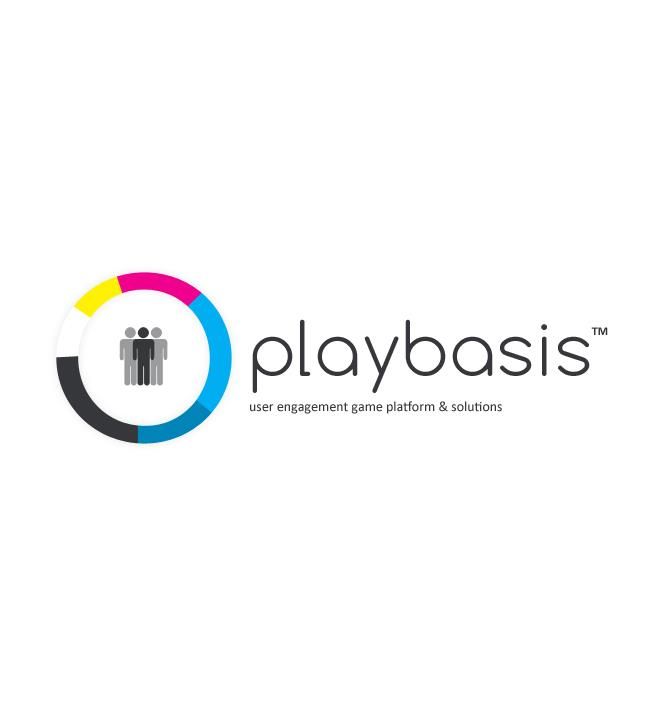Why did Rob Zepeda leave California to start a gamification venture in Thailand?
We recently caught up with Thailand based entrepreneur Rob Zepeda, founder and CEO, Playbasis, an Ardent Capital backed gamification startup. They're looking to make the boring enterprise software sexy and relevant for the younger generations. Before coming to Thailand, Rob dropped out of school in California and spent over 5 years mastering the concepts of game production and design across PC, social, mobile and gamification concepts.

What brought him to Thailand to start up Playbasis? Read on, as we delve deep into this journey -
Journey from the USA to Thailand
I was born and brought up in the US where I spent almost all my professional career in the gaming industry. I came to Thailand on a holiday; it was my first time ever in Asia. I really fell in love with the culture and I decided to come back to Asia as often as I could. After 2-3 years of coming here often, I decided to shift to Asia permanently.
I love the spicy food, and I love the openness of the culture here in Asia. The US is a young country, and it is a mix of cultures because there are a lot of immigrants coming in. I have always gone to diverse schools, so I was always curious about other people’s culture. But when you come to Asia and see that there is several thousands of years of history, it is very exciting. I feel that everyday is a new experience in Asia, a new sound, a new smell, it is like an adventure everyday in Asia.
Early days in Game industry
I dropped out of college to work in the gaming industry. In high school I was already taking college level programming courses, and web designing courses; I wanted to become a web designer. But I found out that my real passion was in games. So, I started working in the gaming industry at the age of 19, and I have been doing that ever since. Some of the companies I worked for are Midway and Activision later in my life which is one of the larger game companies.
After coming to Thailand, I started working with some small game studios. I wanted to create more of an impact at these companies. The trend back then was gamification, and I got into it quite early. When you get into something quite early, there are a lot of challenges around making people understand the market, but the opportunity is that you can become a market leader in the space. I really wanted to embrace that.
Genesis of Playbasis, The concept and contact with Ardent Capital
I approached Ardent Capital to start a gamification company in Thailand. Ardent Capital is more of an e-commerce focused fund, but they saw that the gamification platform and the social aspect of it was going to be very big. They also realized that this could compliment all their e-commerce startups. They encourage me, and that was my story of starting Playbasis in Thailand. I would say right now there is no one better than Ardent to start working with at an early stage.

I started with Ardent Capital roughly in 2012, prior to which I had done a year of consulting as a gamification expert in the region. What I realized was that there is a lot of interest when it comes to applying gamification concepts to businesses, but the technical piece to the puzzle was missing. While I was consulting people about strategy and business, I was not able to offer the best tech piece to them. That is when I thought there is an opportunity to create a platform that you could integrate with an existing website or an application. I also realized that a software business is going to be much more scalable than consulting business.
So we have spent the last year building Playbasis as the technology platform and really educating the market. Gamification as a term has been around since 2011 in the US, and in Asia it is all the more nascent. Over the last one year, we have done tremendous amount of work to educate the market and evangelize the opportunity in this space. We have been at talks and meetups, and we have been on podcasts. We met with a lot of companies in Singapore, Thailand and Malaysia; it takes some time to educate the market. We are really proud of what we have been able to build - we have built a world class platform that can compete with larger players across the world in a short span of time.
On Risk Involved in leaving California, the startup haven, for Thailand
In California, the number of technical companies and software companies is staggering. I grew up my entire life around software developers, building products. So thinking of starting a tech company was very natural to me. When I came to Asia I realized that this was going to be an area of tremendous growth, and is going to become one of the major economic forces of the global economy. I think there is an opportunity to become a market leader in a maiden landscape. If I went back to US then I would be competing with large players. But since we are in Asia we have the opportunity to become regional leaders very quickly, and then scale from there.
Traction and Customers
We have over 570,000 registered users already. We will probably be hitting a million users by the end of this year. We have tied major deals with True Telco which is a telecommunications operator here. These are all significant annual deals. We took about 6-7 months to build a decent product and come out in the market. Once we launched, we have gained significant traction. We have about 10 businesses that have purchased licenses from us, and we also see a tremendous amount of interest in gamification. I will be in India this October speaking at a gamification conference, in fact. We have a huge opportunity to work with players like Microsoft, Infosys, SAP, Wipro etc and we think that India is definitely going to be one of the leaders in terms of gamification adoption very soon.
We are looking for large enterprises that have a sizeable audience that they reach out to. So you can think of banks, telcos, retail chains; those sort of are our target. We are also exploring employee facing gamification. We just built a connector for Sharepoint, one of our clients just expressed interest in employee gamification. That is a large opportunity we think, and a lot of digital agencies are expressing interest as well. We think Playbasis would be a complementary piece to what digital agencies are offering. True telco has purchased 100,000 users seats from us. That is the kind of scale we are looking at.
Gamification as a Market
There is a research done by Markets and Markets, saying that gamification will be a 5.5 billion opportunity by 2018 Similar research reports came out from the US. M2 research pegged gamification industry at 3 billion dollars by 2016. So what we are seeing is an industry that did not exist in 2010 which is going to be multi-billion dollar in the next few years. It is a new category, and it is going to take over a lot of existing categories. Gartner has released a report saying 70% of the Global 2000 companies will be adding gamification by 2014. And for where we are looking to position ourselves, we want to have the best technology, we want to be the best experts and the best know-how. When people ask the question should we build it internally or should we just buy it, we want to be the best partner they reach out to. We want to make this decision very easy for companies.
Team Building in Thailand
The team building took a while. We hired the technology team first. Once the product matured we brought in more people from agency and marketing background. The opportunity was that we were doing something new. As I said even the term gamification required a lot of training to understand. You can certainly not hire experts in this space, but what you can certainly do is hire people who can think innovatively and out of the box.
We are about 8 people full-time right now, and we expect to stay as lean as possible. However we are looking to hire some senior level folks to expand in other parts of Asia - we like the mix of Thailand, Malaysia and Singapore. There is definitely India, which was a big potential market for us as well. I didn’t see this strategy of expansion coming on Day 1, but once we saw the kind of people responding to our ads, things became clear. After speaking to a lot of people in India, we see a huge opportunity there, and we are definitely considering coming to India soon. We definitely think Singapore is a massive opportunity because a lot of the multi-national corporations are here. In fact, we are incorporated in Singapore as well.
Looking for Next Round of Financing in Singapore
Singapore has attracted investors from all over, from Japanese firms, Chinese firms and even Silicon Valley. We are looking to raise our next round from Asia and investors who have the know-how of the Asian market, and can help us expand into different regions of Asia. We are planning to make this an Asia focused venture, but we know that software is ubiquitous and there are many multi nationals who could use our product. I feel that what we are presenting applies in any market and in any language. Essentially, everyone now is a gamer and they would have grown up playing games, their expectations for how software should function will be very different from previous generations. You will soon see all boring enterprise software and call center technology will be replaced by this new form of interactivity, by fun software that gives you feedback and performance. We really want to disrupt the old boring software, we want to make sure that software is fun and interesting and that is going to be speaking to the younger demographic that will take over especially South East Asia. All of the young people will gravitate towards the game like experience of any software. So the larger firms can now offer something fun to the younger generation and stay relevant.
On B2B Sales
What startups need to understand is that sometimes if you are doing B2B, there is a lengthy sales cycle, there is a lengthy approval process, and the budget has to pass through multiple managers and VPs, it is a longer process than if you are selling to consumers, but the commitments in B2B are significant. So anywhere in the world, if you are doing B2B, you will have challenges with sales. But once you get a few flagship customers, it becomes a little easier. More and more companies then get interested, as they do not want to be last ones to be on the band-wagon and try to stay relevant and out innovate their competition. Once you can prove that you can do business with large companies, you will see more and more businesses are receptive to you. So crack some big credible clients, and prove that you can do business with them.
Doing business in Thailand and advice to younger entrepreneurs
In Thailand, we are just beginning to see the explosion of the startup scene with all kinds of support and incubation and co-working spaces and contests and hackathons. You are seeing the business community embrace technology startups more and more, and this will continue to happen. Also a lot of big companies in Thailand are now happy to do business with smaller firms.
I would recommend younger Thai entrepreneurs to solve a problem for local audience, acquire some customers here and then think of scaling regionally. You got to have wider ambitions.Too often people are jumping right into entrepreneurship soon after college - they miss the opportunity to witness what it takes to work inside of a large organization, and learn some of the best practices that those organizations can provide. I do recommend young entrepreneurs to get some experience be a real domain expert in whatever they want to launch, start with a side project, get some initial traction locally and then think about expanding regionally to SE Asia as well. The good thing about this region is that there are a lot of major urban hubs whether it is Bangkok or Bangalore or Jakarta or Singapore - you have these mega cities where it is easy to try something and get some initial traction in your home town.
More about Playbasis here http://playbasis.com/









![[Product Roadmap] How this Shark Tank startup brings analytics, Moneyball, data to kabaddi](https://images.yourstory.com/cs/2/a9efa9c02dd911e9adc52d913c55075e/NewLogoforimagesEditorialTeamMaster-1644336662634.jpeg)

